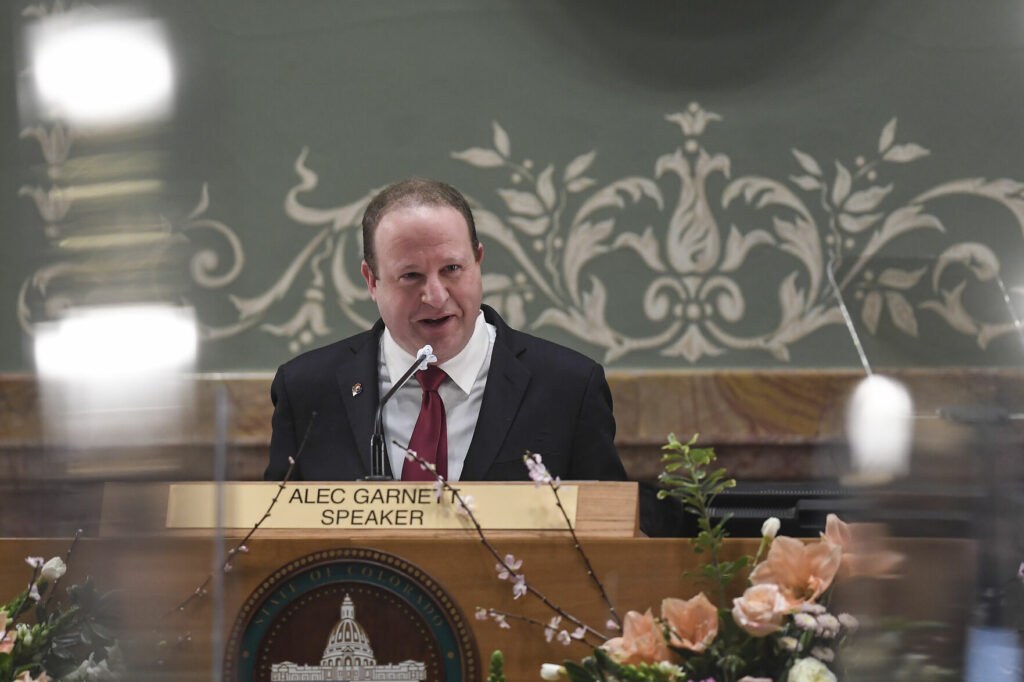Fair workweek bill in for big changes, sponsors say

A bill requiring more predictable scheduling and compensation for “show up time” in the retail and food and beverage industries will see big changes before lawmakers get their first chance to take action on it.
The House Business Affairs and Labor Committee on Thursday listened to nearly seven hours of testimony on House Bill 1118, known as the “Fair Workweek” bill, before sponsors pulled it from consideration to work on a rewrite.
The rewrite was hinted at throughout the hearing that went late into the evening, with indications the bill will lose its language on whistleblower protections and minimum weekly pay.
But opponents said those changes are not enough to move them to a position of support, much less neutrality, and several warned they will abandon plans to expand their businesses in Colorado if the bill succeeds.
Sources at the Capitol say the bill has a ways to go to win the support of legislative Democrats and possibly, the governor.
So far, only Oregon is the only state with a statewide predictive scheduling law, although opponents claim HB 1118 goes far beyond even what’s in the Oregon law.
The two sides also couldn’t agree on just who the law applies to. Supporters claim it will apply only to retailers, food and beverage establishments and food and beverage manufacturing/processing companies with 250 or more employees, primarily large “greedy” corporations with franchises or chains. But opponents, including the Colorado Chamber of Commerce, said their interpretation is the bill will apply to all employers, including small business.
HB 1118 requires an employer to provide written notice of an employee’s work schedule 14 days in advance and hours cannot vary by more than 15 percent without the employee’s written consent. If the employee agrees to pick up more hours, that also must be in writing.
Shifts that get canceled at the last minute – such as for inclement weather, as was the case earlier this week – would require the employer to provide “predictability pay” of up to two hours; the employee would get an extra hour of pay for consenting to add a shift at the last minute, unless initiated by the employee.
The bill also requires at least 12 hours between shifts, unless the employer obtains written consent for less than that. And existing employees must be given first right of refusal for additional hours before the employer can make new hires.
Employees would have the right to request scheduling changes of all kinds. That would address one of the concerns raised by many witnesses in Thursday’s hearing: that they were unable to go to their children’s school events, meet with teachers, go to medical appointments or care for aging family members.
Christopher Alvarado has five children, but only two graduated from high school. He attributes his younger children’s educational success to his being able to attend meetings with their teachers or even just being able to pick them up on time from school, which he said happened after his workplace was unionized. “I was actually able to spend and be more present with my family,” Alvarado told the committee. “It’s very important that your constituents have a more balanced life when it comes to raising future voters,” he said.
HB 1118 sponsor Rep. Serena Gonzales-Gutierrez, D-Denver, said workers do not feel safe testifying for fear of retaliation and losing their livelihood. “We have heard stories where workers are scheduled to work six hours and then while working are told they must stay an additional five hours…and fired if they leave.” That keeps them from taking their children to the doctor or even picking them up from school or day care, she explained.
Unpredictable scheduling is a way of life for employees in hospitality, healthcare, manufacturing, retail, restaurants, and much more, she said.
Co-sponsor Rep. Emily Sirota, D-Denver, added that unpredictable hours mean unpredictable income. A recent study from the Harvard Shift Project, which interviewed employees in Colorado’s retail and food service industries, reported their incomes vary from week to week. That same study said employees reported they are underemployed and want more hours than they’re given.
Two-thirds said they’re struggling to pay bills and one-third said they couldn’t cover an emergency of $400, she said. And while the bill only applies to retail and food and beverage, the sponsors are “hoping to start with a small piece of this puzzle,” indicating the law could eventually cover employees in other industries such as healthcare and building services.
To naysayers who claim the law will shut down business, Sirota said the same claims had been made around other pro-employee laws passed n the last few years, and those businesses did not shut down.
More stability in scheduling leads to better retention. A recent Colorado Fiscal Institute study, using data from the Harvard Shift Project, estimated HB 1118 would produce “$85 million in savings for Colorado’s retail industry, over $30 million for food services establishments, and over $12 million for food manufacturing establishments.”
Opponents, which outnumbered supporters by at least 3:1, according to the witness list, claim it is the system of flexible scheduling that their employees want.
Angie Howes, representing the Colorado Retail Council, said HB 1118 “ignores the fundamental realities of the retail sector, both its inherent unpredictability and how modern day retailers have worked to create as much predictability as possible and also maintain the flexibility so many employees want as well.” The bill will disincentive hiring and will lead to fewer jobs for students, retirees, first time job seekers, and people looking for a few extra paychecks for the holidays or unexpected costs.
Among those testifying against HB 1118: former state Sen. Paula Sandoval, D-Denver, who runs Tamales by La Casita. Former state Rep. Jonathan Singer, D-Longmont, testified on behalf of the Boulder Chamber of Commerce, which he said had not taken a position, but the bill has raised concerns, including about the process
Owners and others associated with some of Colorado’s best-known restaurants showed up in droves to speak against the bill, including Moe’s Original BBQ, Ted’s Montana Grill, Beau Jo’s pizza, Cinnabon, Black-eyed Pea (which just closed its final location in Colorado) and Sam’s #3. Notably, Starbucks was represented by a half-dozen employees who had gripes about working conditions; no one from the company testified.
Several said their businesses sometimes have unpredictable hours and customers, and that the bill would hamstring their ability to stay profitable, given low profit margins. The owner of Bistro Vendome noted that her re-opening was delayed a week, at a cost of $48,000. Paying minimum salaries would add to that. The bill will force restaurants to raise prices, in an era when many have still not recovered from the effects of the pandemic on the industry, which was hit hardest of any sector, according to several witnesses.
And while the bill exempts agriculture, Colorado Farm Bureau’s Austin Vincent noted many in ag aren’t only in production. Their businesses can include much more sections of the supply chain, including processing, which could place them under the bill’s jurisdiction.
Snooze has 13 locations in Colorado and a 14th is planned, but it will be the last new location in Colorado if HB 1118 passes, said a company official. “We welcome people that are looking for a career in hospitality or as a side hustle, an entrepreneurial dream and everything in between.” She said the restaurant already posts schedules 14 days in advance. Employees love the flexibility and opportunity to jump in when needed. “We won’t be able to offer up last-minute shifts without financial penalties,” if the bill passes, she said. That means more wait times for customers, limited menu items or even closures.
At the request of the sponsors, HB 1118 was laid over to a future date to allow for more work on the anticipated strike-below amendment.














